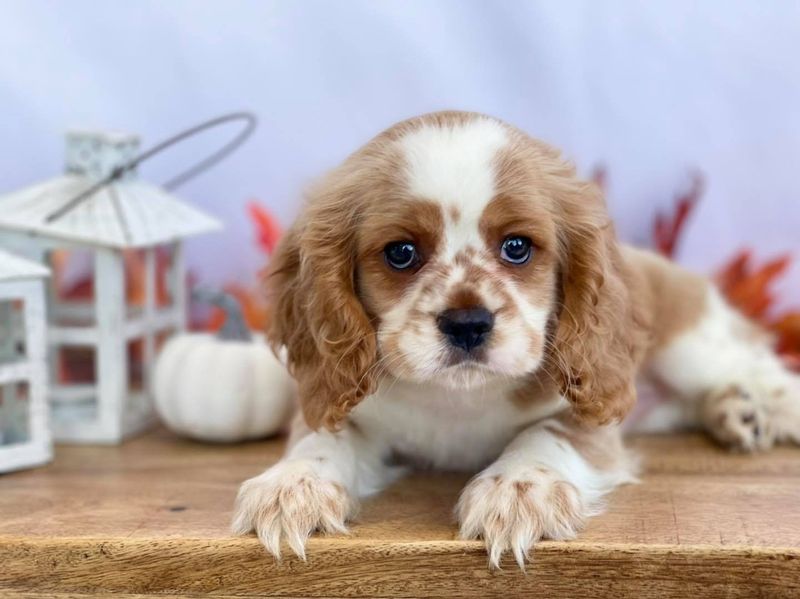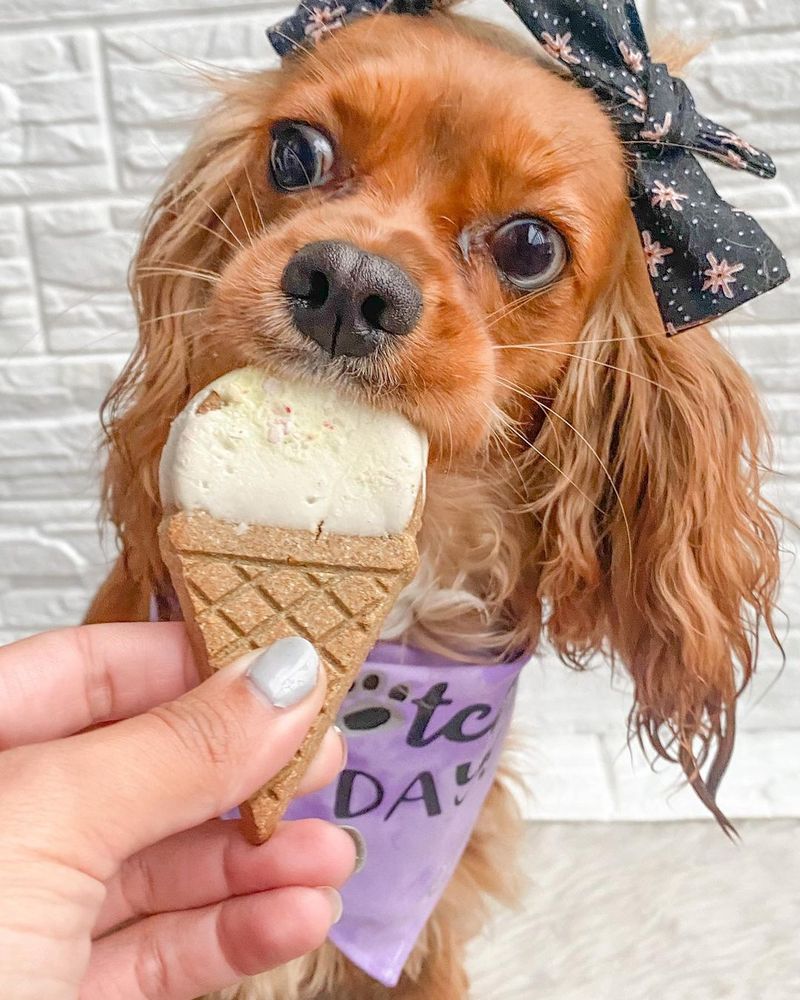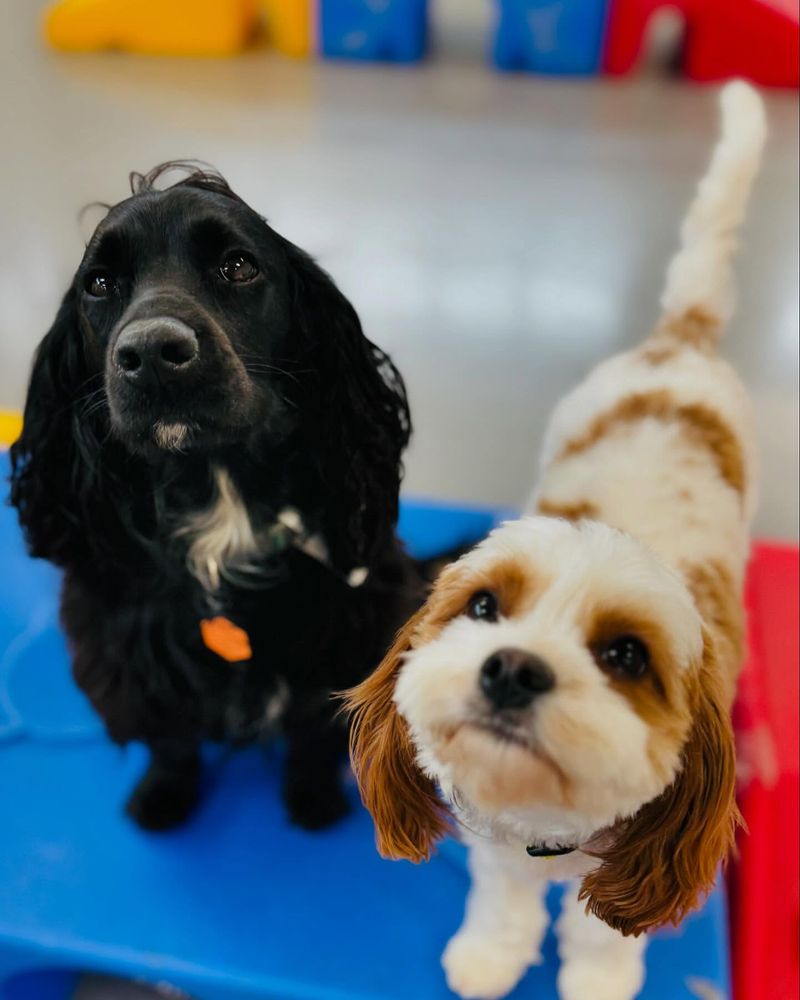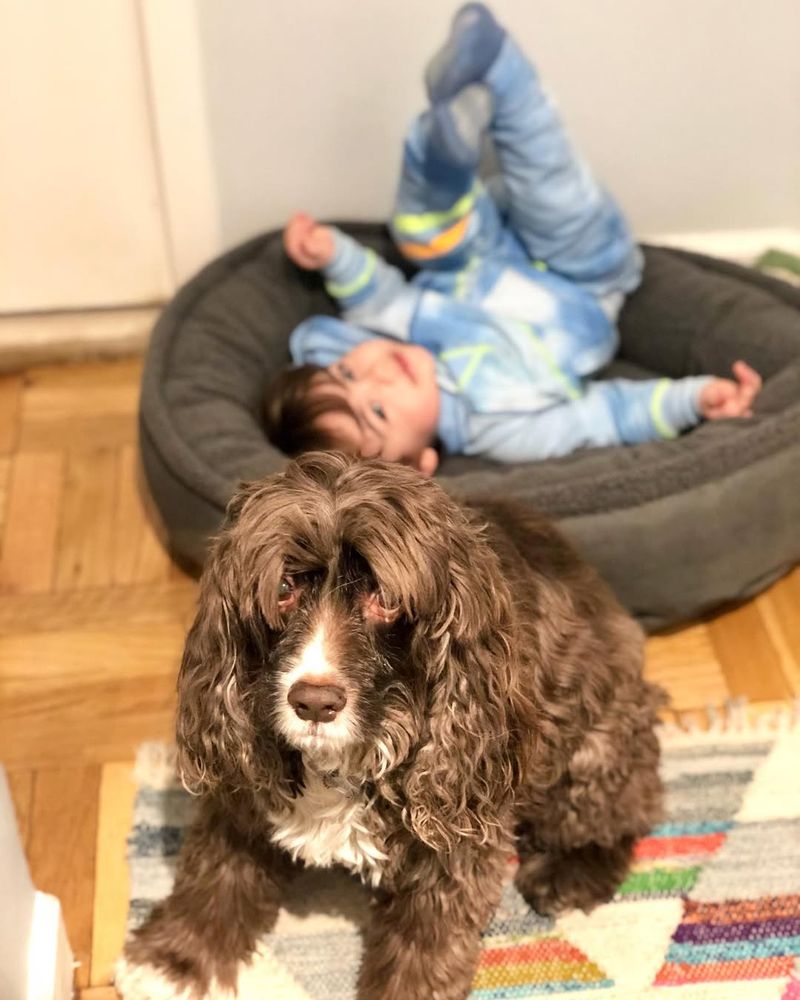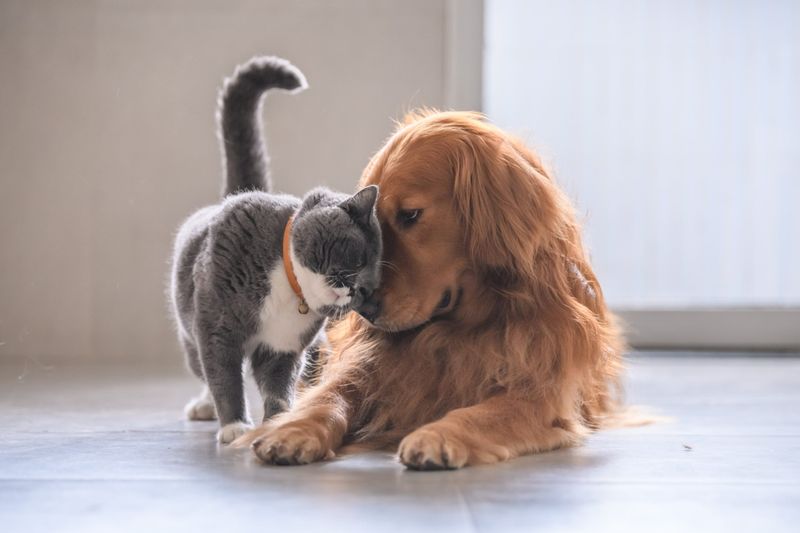The Cockalier is a delightful mix between the Cavalier King Charles Spaniel and the Cocker Spaniel, offering the best traits of both breeds. Known for their affectionate nature and charming looks, Cockaliers make excellent family pets. They are friendly, sociable, and thrive on companionship, making them ideal for households that can offer plenty of interaction. This blog post explores essential aspects of owning a Cockalier, from understanding their personality traits and grooming needs to training tips and health considerations. Whether you’re considering adopting a Cockalier or are already a proud owner, these insights will help you provide the best care for your furry friend.
Playful Personality
Cockaliers are known for their playful and lively nature. They’re the kind of dogs that bring life to any room and are always up for a game of fetch. This lively temperament makes them perfect companions for families with children. However, their high energy levels mean they need regular exercise to stay happy and healthy. Engaging in daily playtime or walks will keep them physically and mentally stimulated. Their playful antics are sure to bring laughter and joy to any household. Be prepared for a pet that loves to entertain and be entertained.
Affectionate Companions
One of the most endearing traits of Cockaliers is their affectionate nature. They form strong bonds with their human families and thrive on companionship. This makes them excellent lap dogs, always ready for a cuddle session. Their loving demeanor makes them suitable for therapy work, bringing comfort to those in need. As they are prone to separation anxiety, they do best in homes where they won’t be left alone for long periods. Providing them with attention and love will ensure a happy and well-adjusted pet. Expect a loyal friend for life.
Grooming Needs
Cockaliers require regular grooming to maintain their beautiful coats. Their fur can be either wavy or curly, necessitating frequent brushing to prevent tangles and mats. Regular grooming sessions also offer an excellent opportunity to check for any skin issues or parasites. Bathing should be done as needed, with attention to cleaning their ears to prevent infections. Professional grooming every few months will keep them looking their best. While grooming, always check their nails to ensure they’re not too long. Proper grooming is essential for keeping your Cockalier healthy and comfortable.
Training Tips
Training a Cockalier can be a rewarding experience due to their eager-to-please attitude. They respond well to positive reinforcement methods, such as treats and praise. Consistency and patience are key when teaching them new commands. Early socialization is crucial to expose them to various environments and people, reducing the chances of developing behavioral issues. Enrolling in puppy training classes can be beneficial for both the dog and owner. Regular training sessions will strengthen the bond between you and your Cockalier. Always make training sessions fun and engaging to maintain their interest.
Health Considerations
Cockaliers, like all breeds, have specific health considerations to be aware of. They may inherit health issues common to their parent breeds, such as heart problems and ear infections. Regular veterinary check-ups are essential to monitor their health and catch any potential issues early. Maintaining a balanced diet and ensuring they get enough exercise will contribute to their overall well-being. Be attentive to any changes in behavior or appetite, as these could indicate health concerns. With proper care, Cockaliers can lead happy and healthy lives. Regular health monitoring is key to their longevity.
Ideal Living Environment
Cockaliers adapt well to various living environments, whether it’s a city apartment or a suburban home. However, they thrive best in homes where they can receive plenty of attention and interaction. Access to a fenced yard is ideal for allowing them to play and explore safely. Apartment dwellers should ensure they provide regular walks and playtime to keep them active. Cockaliers are not suited for homes where they’ll be left alone for extended periods. They excel in environments where they feel part of the family. A loving home is where they’ll truly flourish.
Dietary Needs
Feeding your Cockalier a balanced diet is crucial for their health. High-quality dog food that meets their nutritional needs is essential. Consider their age, size, and activity level when selecting their diet. Some Cockaliers may have food sensitivities, so monitoring their reaction to different foods is important. Portion control is vital to prevent obesity, especially since Cockaliers are prone to weight gain. Always provide fresh water and avoid feeding them table scraps, which can lead to unhealthy weight gain. Regularly consult your veterinarian for dietary advice to ensure your Cockalier’s optimal health.
Socialization Importance
Socialization is a critical aspect of a Cockalier’s development. Introducing them to different people, animals, and environments early on helps them grow into well-adjusted adults. Regular visits to dog parks or playdates with other dogs can enhance their social skills. Exposure to various situations reduces the likelihood of anxiety and fear-based behaviors. Socialization should continue throughout their lives to maintain their friendly demeanor. A well-socialized Cockalier is a joy to be around, as they’re confident and adaptable. Investing time in socialization will lead to a happier, more relaxed pet.
Exercise Requirements
Cockaliers are energetic dogs that require daily exercise to maintain their physical and mental health. Regular walks, playtime, or even agility exercises can help burn off their excess energy. Without adequate exercise, they may become bored and develop undesirable behaviors. Tailor exercise routines to their age and health status, gradually increasing intensity as they mature. Cockaliers excel in active households and enjoy participating in family activities. Always consider weather conditions when exercising them outdoors. Keeping your Cockalier active ensures their happiness and contributes to a balanced lifestyle.
Child-Friendly Nature
Cockaliers are known for their friendly and gentle nature, making them great companions for children. They enjoy playtime and can engage in various activities with kids. Their patience and affectionate demeanor make them suitable for families with young children. Supervision is recommended during interactions to ensure safety for both the dog and children. Teaching children how to interact respectfully with pets is important to foster a positive relationship. A Cockalier’s loving nature means they’re more than just pets; they’re cherished family members. They thrive in environments where they can be part of the action.
Intelligent and Trainable
Cockaliers are intelligent dogs, eager to learn and quick to pick up new commands. Their trainable nature makes them suitable for various activities, including obedience and agility competitions. Positive reinforcement techniques work best with this breed, encouraging good behavior and obedience. Regular mental stimulation is necessary to keep their minds sharp and prevent boredom. Training sessions should be kept short and engaging to ensure their attention. Consistent training from an early age will result in a well-behaved and obedient companion. Cockaliers enjoy the mental challenge and thrive in learning environments.
Travel-Friendly Pets
Cockaliers are adaptable and generally travel well, making them great companions for families on the go. Whether it’s a road trip or a flight, they can adjust to different travel modes with proper preparation. Their friendly demeanor makes them welcome in many pet-friendly accommodations. When traveling, ensure they are secure and comfortable, using appropriate restraints or carriers. Regular breaks and exercise during long journeys help keep them happy. Being prepared with their essentials, such as food, water, and toys, ensures a pleasant travel experience. Cockaliers make travel enjoyable with their adaptable nature.
Common Behavioral Traits
Cockaliers exhibit a range of charming behavioral traits. Their curious nature often leads to delightful head tilts as they try to understand their surroundings. Known for their intelligence, they may attempt to solve puzzles or explore new areas. Cockaliers are generally friendly and get along well with other pets. However, their affectionate nature means they might demand constant attention. Providing them with toys and mental stimulation helps keep them content. Understanding and adapting to their behavioral quirks is essential for a harmonious relationship. Embrace their unique personalities for a fulfilling pet ownership experience.
Lifespan and Longevity
Cockaliers have a relatively long lifespan, often living between 12 to 15 years with proper care. Their longevity depends on genetics, diet, exercise, and regular veterinary check-ups. A balanced lifestyle that includes mental and physical stimulation contributes to their overall well-being. Being aware of hereditary health issues and addressing them promptly can extend their lifespan. Providing a loving and attentive environment ensures they thrive throughout their years. Cockaliers bring joy and companionship, making their extended lifespan a blessing for any family. Cherishing each moment with them enriches the pet-owner bond.
Ear Care
Cockaliers are prone to ear infections due to their floppy ears, which can trap moisture and debris. Regular ear cleaning is essential to prevent infections and maintain ear health. Use a vet-recommended ear cleaner and gently clean the ear canal, avoiding deep insertion. Checking their ears weekly allows for early detection of any issues. Be attentive to signs of discomfort, such as head shaking or scratching, which may indicate ear problems. Proper ear care is a vital part of their grooming routine. Ensuring their ears are clean contributes to their overall health and comfort.
Loyalty to Owners
Cockaliers are known for their unwavering loyalty to their owners. They form deep bonds and are happiest when spending time with their human families. Their loyal nature means they may follow their owners around the house, always wanting to be close. This loyalty extends to being protective, alerting owners to unfamiliar noises or visitors. While their loyalty is endearing, it can also lead to separation anxiety if left alone too long. Building their confidence through training and socialization helps manage their attachment. Cockaliers’ loyalty makes them cherished companions, always eager to please.
Potential for Allergies
Cockaliers, like many breeds, can be prone to allergies affecting their skin or digestive system. Common allergens include certain foods, pollen, and flea bites. Monitoring for signs such as itching, redness, or gastrointestinal issues helps identify allergies early. A vet can conduct tests to determine specific allergens and recommend treatment. Dietary changes or medications may be necessary to manage symptoms. Providing a clean and allergen-free environment minimizes exposure to potential triggers. Awareness and proactive management of allergies contribute to a Cockalier’s comfort and quality of life. Regular vet consultations ensure their well-being.
Adaptability to Weather
Cockaliers can adapt to various weather conditions but may require assistance in extreme temperatures. During cold weather, a dog coat or sweater can keep them warm during outdoor activities. It’s important to protect their paws from ice and snow by using booties or paw wax. In hot weather, ensure they have access to shade and fresh water to prevent overheating. Avoid exercising them during peak temperatures to reduce the risk of heatstroke. Being mindful of weather conditions ensures their comfort and safety. Cockaliers thrive when their environment is adjusted to meet their needs.
Compatibility with Other Pets
Cockaliers generally get along well with other pets, including cats and dogs. Their friendly and social nature makes them great companions for multi-pet households. Early socialization and introductions in a controlled environment help ensure positive relationships. Monitoring interactions during the initial stages is important for safety. Providing separate spaces for each pet reduces potential conflicts. Cockaliers’ playful demeanor makes them eager to engage with other animals. Encouraging positive experiences and rewarding good behavior fosters harmonious relationships. Enjoying the company of fellow pets adds to the joy of owning a Cockalier.

